Related Research Articles
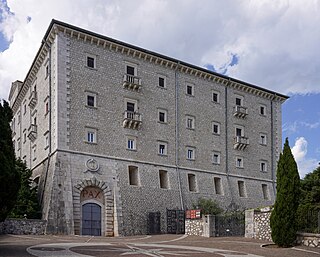
Monte Cassino is a rocky hill about 130 kilometres (80 mi) southeast of Rome, in the Latin Valley, Italy, 2 kilometres west of Cassino and at an elevation of 520 m (1,710 ft). Site of the Roman town of Casinum, it is widely known for its abbey, the first house of the Benedictine Order, having been established by Benedict of Nursia himself around 529. It was for the community of Monte Cassino that the Rule of Saint Benedict was composed.

The Strega Prize is the most important Italian literary award. It has been awarded annually since 1947 for the best work of prose fiction written in the Italian language by an author of any nationality and first published between 1 May of the previous year and 30 April.

Dacia Maraini is an Italian writer. Maraini's work focuses on women's issues, and she has written numerous plays and novels. She has won awards for her work, including the Formentor Prize for L'età del malessere (1963); the Premio Fregene for Isolina (1985); the Premio Campiello and Book of the Year Award for La lunga vita di Marianna Ucrìa (1990); and the Premio Strega for Buio (1999). In 2013, Irish Braschi's biographical documentary I Was Born Travelling told the story of her life, focusing in particular on her imprisonment in a concentration camp in Japan during World War II and the journeys she made around the world with her partner Alberto Moravia and close friends Pier Paolo Pasolini and Maria Callas. In 2020 she adheres to Empathism.
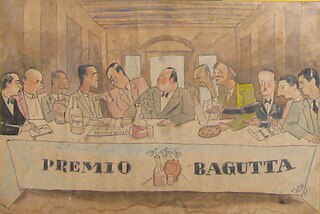
The Bagutta Prize is an Italian literary prize that is awarded annually to Italian writers. The prize originated among patrons of Milan's Bagutta Ristorante. The writer Riccardo Bacchelli discovered the restaurant and soon he regularly gathered numerous friends who would dine there together and discuss books. They began charging fines to the person who arrived last to an appointed meal, or who failed to appear.

Carlo Cassola was an Italian novelist and essayist. His novel La Ragazza di Bube (1960), which received the Strega Prize, was adapted into a film of the same name by Luigi Comencini in 1963.

Mario Soldati was an Italian writer and film director. In 1954, he won the Strega Prize for Lettere da Capri. He directed several works adapted from novels, and worked with leading Italian actresses, such as Sophia Loren and Gina Lollobrigida.
Angela Bianchini was an Italian fiction writer and literary critic of Jewish descent. She grew up in Italy and emigrated to the United States in 1941, after Mussolini's openly anti-Semitic racial laws were enacted.

Bebo's Girl is a historical fiction novel by Italian writer Carlo Cassola which was published in 1960 and was awarded that year’s Premio Strega. Its initial reception was enthusiastic and an English translation by Marguerite Waldman was published in 1962 as Bebo’s Girl. By 1995 the original had been through in 14 editions.

Fulvio Tomizza was an Italian writer. He was born in Giurizzani di Materada in Istria, to a middle-class family. His mother was Margherita Frank Trento, born into a poor family of Slavic extraction. His father, Ferdinando, reportedly was from an ancient family of southern Dalmatian Italian origins. Tomizza grew up in a zone where the dialect was mixed.
The Zerilli-Marimò / City of Rome Prize for Italian Fiction was an Italian American literary award funded by Baroness Mariuccia Zerilli-Marimò. The award winning book is selected as being especially worthy of the attention of readers in North America and the English-speaking world. The prize is sponsored by various organizations, among which New York University, Harvard University, and the Italian Ministry of Foreign Affairs. The jury consists of 70 members who are fluent in Italian, but of non-European nationality.

Barbara Baraldi is an Italian mystery and fantasy writer.
Michele Mari is an Italian novelist, short story writer, academic critic and poet. The son of a Milanese industrial designer and artist, Enzo Mari, Mari teaches Italian literature at the Università Statale di Milano; he is considered one of the leading experts of 18th century Italian literature.

Paolo Volponi was an Italian writer, poet, and politician.
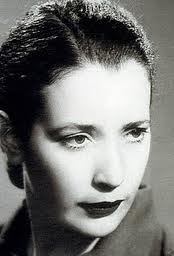
Anna Maria Ortese was an Italian author of novels, short stories, poetry, and travel writing. Born in Rome, she grew up between southern Italy and Tripoli, with her formal education ending at age thirteen. Her first book, Angelici dolori, was issued in 1937. In 1953 her third collection, Il mare non bagna Napoli, won the coveted Viareggio Prize; thereafter, Ortese's stories, novels, and journalism received many of the most distinguished Italian literary awards, including the Strega and the Fiuggi. Although she lived for many years in Naples following the Second World War, she also resided in Milan, in Rome, and for most of the last twenty years of her life in Rapallo. L'iguana, Ortese’s best-known work in English translation, was published in 1987 as The Iguana by the American literary press McPherson & Company. As of 2023, what she considered as her most important work, the novel Il porto di Toledo (1975), had not been translated into English yet.

Milena Agus is an Italian author from Sardinia. She is one of the leading novelists in the so-called Sardinian Literary Spring which began in the 1980s and which includes other international names such as Michela Murgia.
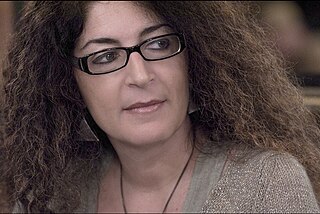
Melania Gaia Mazzucco is an Italian author. She is a recipient of the Strega Prize and Bagutta Prize.
Veronica Raimo is an Italian writer, translator, and screenwriter.
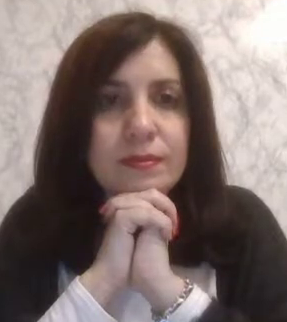
Nadia Terranova is an Italian author.

The Hummingbird is a 2019 novel by Sandro Veronesi. The novel is presented in fragments with a nonlinear narrative structure and follows the tumultuous life of ophthalmologist Marco Carrera. The novel won the prestigious Strega Prize (2020).

M: Son of the Century is a 2018 historical novel by Antonio Scurati. It is the first novel in a tetralogy recounting the rise of Italian dictator Benito Mussolini. It was a bestseller and was awarded the 2019 Strega Prize.
References
- ↑ "Helena Janeczek". Worldcat. Retrieved 26 February 2019.
- ↑ Pacifico, Francesco (6 July 2018). "First Woman Wins the Strega Prize in Fifteen Years". The Paris Review. Retrieved 25 February 2019.
- ↑ Mackay, Jamie (2019-11-23). "The Girl With the Leica by Helena Janeczek review – a revolutionary life in pictures". The Guardian. ISSN 0261-3077 . Retrieved 2020-02-20.
- ↑ "Fiction Book Review: The Girl with the Leica by Helena Janeczek, trans. from the Italian by Ann Goldstein. Europa, $18 trade paper (364p) ISBN 978-1-60945-547-7". PublishersWeekly.com. Retrieved 2020-02-20.
- ↑ THE GIRL WITH THE LEICA | Kirkus Reviews.